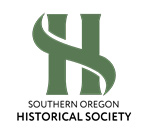Indigenous people have gathered berries and medicinal plants, hunted, fished and socialized since time immemorial on Huckleberry Mountain just west of present-day Crater Lake National Park.
Among the tribes that traditionally visit the mountain are the Klamath, Modoc, Molala, Upper Umpqua and Takelma. Early pioneers began trekking to the mountain in the mid-1800s, camping and picking near the Indians.
In 2002, a National Park Service-sponsored study said the mountain served the tribes in the 18th and 19th centuries “as one of the most important food gathering sites in their world.”
Each year, more than a thousand Indians would camp from two to three months on the mountain. The women gathered huckleberries and the men hunted elk, deer and bear and fished for salmon and trout in the mountain streams. Descendants of the Indians and pioneers still gather berries, but in much reduced numbers and far shorter periods.
The Park Service report recommended that means be found to counteract “Cattle grazing, campground development, logging, and a variety of other workaday agency functions (that) have sometimes served to undermine traditional tribal uses, as have game laws enforced first by the Forest Service and later by the State of Oregon”.
Source: Deur, Douglas, PhD. "Huckleberry Mountain Traditional-Use Study Final Report." Report from University of Nevada, Reno to Frederick F.York, Ph.D. National Park Service. 20 Oct. 1908, soda.sou.edu/Data/Library1/030212b1.pdf. Accessed 2002.
The SOHS Library is OPEN to the public at 106 N. Central Avenue in Medford, with FREE access to the SOHS Archives, from 12:00 - 4:00 pm, Tuesday through Saturday. Appointments are not necessary. Please contact library@sohs.org, or call 541-622-2025 ex 200 to ask questions or request research.
Huckleberry Mountain Serves Indigenous for Thousands of Years
Episode
3133
Date
